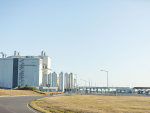NZ First should butt out of Fonterra’s business, says Lloyd Downing, a Morrinsville dairy farmer and former Waikato Federated Farmers president.
For NZ First leader Winston Peters to speak out now when there is a Fonterra board election coming up is “completely irresponsible,” Downing told Dairy News.
“This is not national politics; this is NZ’s biggest company. He shouldn’t be messing with that right now.”
But Downing also says Fonterra farmers themselves should be taking more notice of what is going on in their own business.
“Nobody wants to have a 15c dividend. But I don’t believe it is right for a politician to get involved in that sort of thing.
“Having [NZ First MP and Cabinet Minister] Shane Jones saying he is going to lean on [Agriculture Minister] Damien O’Connor to change the legislation... is an absolute disgrace.”
He says NZ First is below the 5% threshold and will be “trying to keep their votes up”.
Downing says no one wants to lose $190 million – the cost to Fonterra of compensating Danone for the 2013 product recall which proved a false alarm
“But if there had been a bug in the baby formula and they hadn’t pulled it we wouldn’t have a cooperative anymore,” he argues. “I think a lot of people don’t understand that.”
And Fonterra’s $350 million write-down of the value of its investment in Beingmate has to be seen in the context of the value of Fonterra as company -- about $20 billion, Downing says.
“I understand the whole Chinese stock exchange has been downgraded anyway.”
He also understands the Chinese Government is saying to Fonterra “please stay”. “That’s positive news.”
He says the Beingmate decision was a “board decision”. The blame cannot be placed on chairman John Wilson; he was just part of it.
Downing says he sees the reasoning behind Fonterra’s decision to invest because he understands the Chinese at one stage stopped dealing with Australia because “they did not have enough skin in the game”.
“When they look at foreign ownership in New Zealand, they look at what the company can bring to the country, don’t they? This is no different from what China is doing.”
He admires Fonterra as a company; as a shareholder farmer attending its conference “you just want to belong to them,” he says.
“The biggest issue is if I sell my shares I can’t supply Fonterra.” His farm produces about 200,000kgMS and if he wanted to release capital and sell his shares he’d have to have a different tanker coming up his driveway.
“I think that’s crazy; that is the biggest issue. I complained at the conference in May that we should have been discussing that more fully. We only discussed it for a little but we discussed it for a bit longer than they were going to.”
He says he doesn’t care whether another farmer wants to sell his shares or not but he should still be able to have the blue tanker coming up his drive. They should get a bit lower milk price, but only a little as they will go to another supplier.











